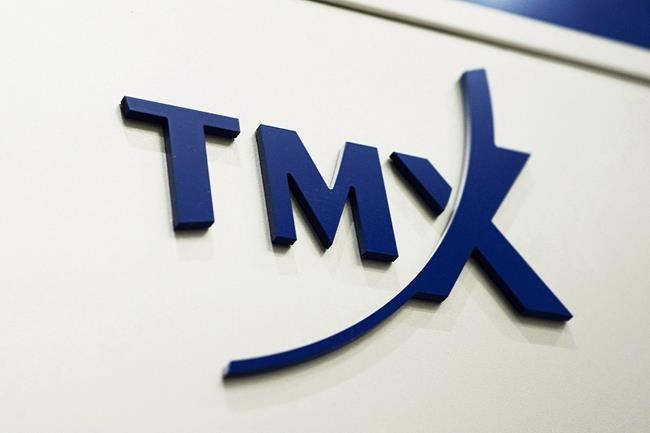TORONTO — Major stock indexes in Canada and the U.S. closed lower Thursday as inflation fears swirled and the Canadian loonie rose over 80 cents US before falling back to earth.
Rising bond yields triggered a broad sell-off on Wall Street that erased the market's gains for the week and handed the Nasdaq composite its biggest loss in nearly four months.
In Toronto, the S&P/TSX composite index closed down 260.99 points at 18,223.54 as nine of 11 sectors wound up in the red.
"There's a general risk-off trade on today where profits are being taken and it relates back to the spike we saw this morning in bond yields," said Scott Guitard, senior vice-president and portfolio manager at Fiduciary Trust Canada, in an interview Thursday afternoon.Â
"I think it caught a lot of people off guard. It was a fairly significant move."
The 10-year U.S. Treasury bond yield moved higher than the dividend yield for some of the major indexes in the United States, he said, adding the much-watched measure is a trigger for some investors to rotate out of stocks and into bonds.
In New York, the Dow Jones industrial average was down 559.85 points at 31,402.01. The S&P 500 index was down 96.09 points at 3,829.34, while the Nasdaq composite was down 478.54 points at 13,119.43.
Bond yields have been rising this month, reflecting growing confidence among investors that the economy is on the path to recovery, but also concern that inflation is headed higher. And every tick up in bond yields recently has corresponded with a tick down in stock prices.
The Canadian dollar rose to 79.81 cents US, compared with 79.69 cents US on Wednesday, after touching on a three-year high just over 80 cents US earlier Thursday.
The dollar's strength comes indirectly from inflation fears as higher prices for oil are a symptom of higher inflation, leading to speculation that the Bank of Canada might move to raise interest rates ahead of the United States, Guitard said.
The April crude oil contract rose 31 cents to US$63.53 per barrel on Thursday and the April natural gas contract was down two cents at US$2.78 per mmBTU.
A rout in technology companies delivered a 3.5 per cent slide for the Nasdaq on Thursday, the biggest loss for the tech-heavy index since last October, while the information technology sector in Toronto fell 2.09 per cent, led by Sierra Wireless with a seven per cent drop.
After huge gains last year as more people worked from home because of the COVID-19 lockdowns, technology is losing popularity with the rollout of vaccines and prospects for a return to a more normal work environment, Guitard said.
"I also think there's some of that 'good news is bad news' going on in the market where we did see strong data in the U.S., both jobless claims and durable good orders, were good numbers versus expectations, but then that rolls into higher yields again, putting downward pressure on stocks," he said.
After a strong showing on markets earlier this week, Guitard said some of Thursday's weakness could be from profit-taking.
The financial sector was down 1.29 per cent, for instance, despite all of the big Canadian banks reporting better-than-expected fourth-quarter earnings results — only CIBC, with a minuscule 0.14 per cent gain, came out ahead on Thursday.
The April gold contract was down US$22.50 at US$1,775.40 an ounce and the May copper contract was down four cents at US$4.26 a pound.
— with files from The Associated Press
This report by The Canadian Press was first published Feb. 25, 2021.
Companies in this story: (TSX:GSPTSE, TSX:CADUSD=X, TSX:SW, TSX:CM)
Dan Healing, The Canadian Press




